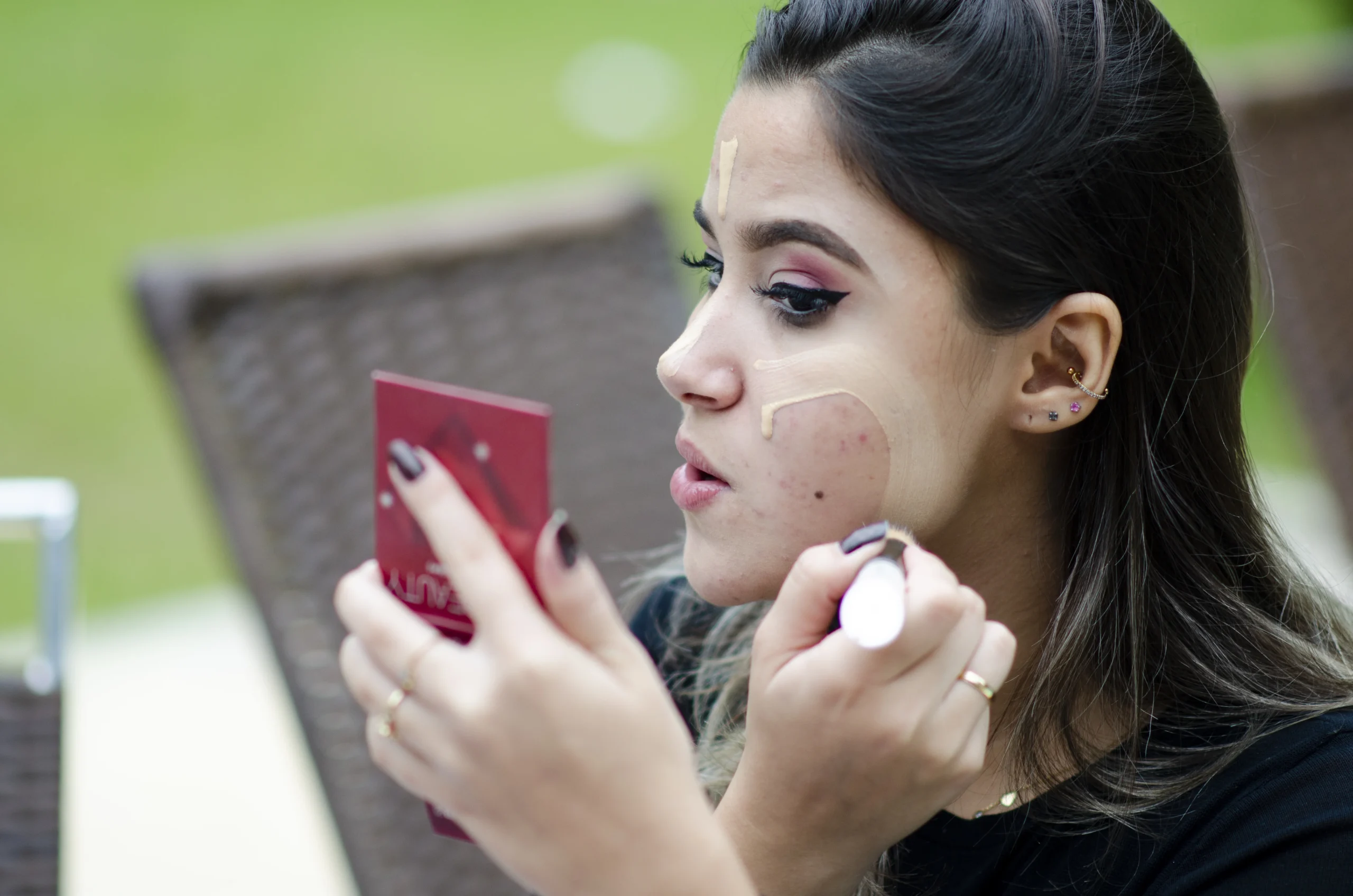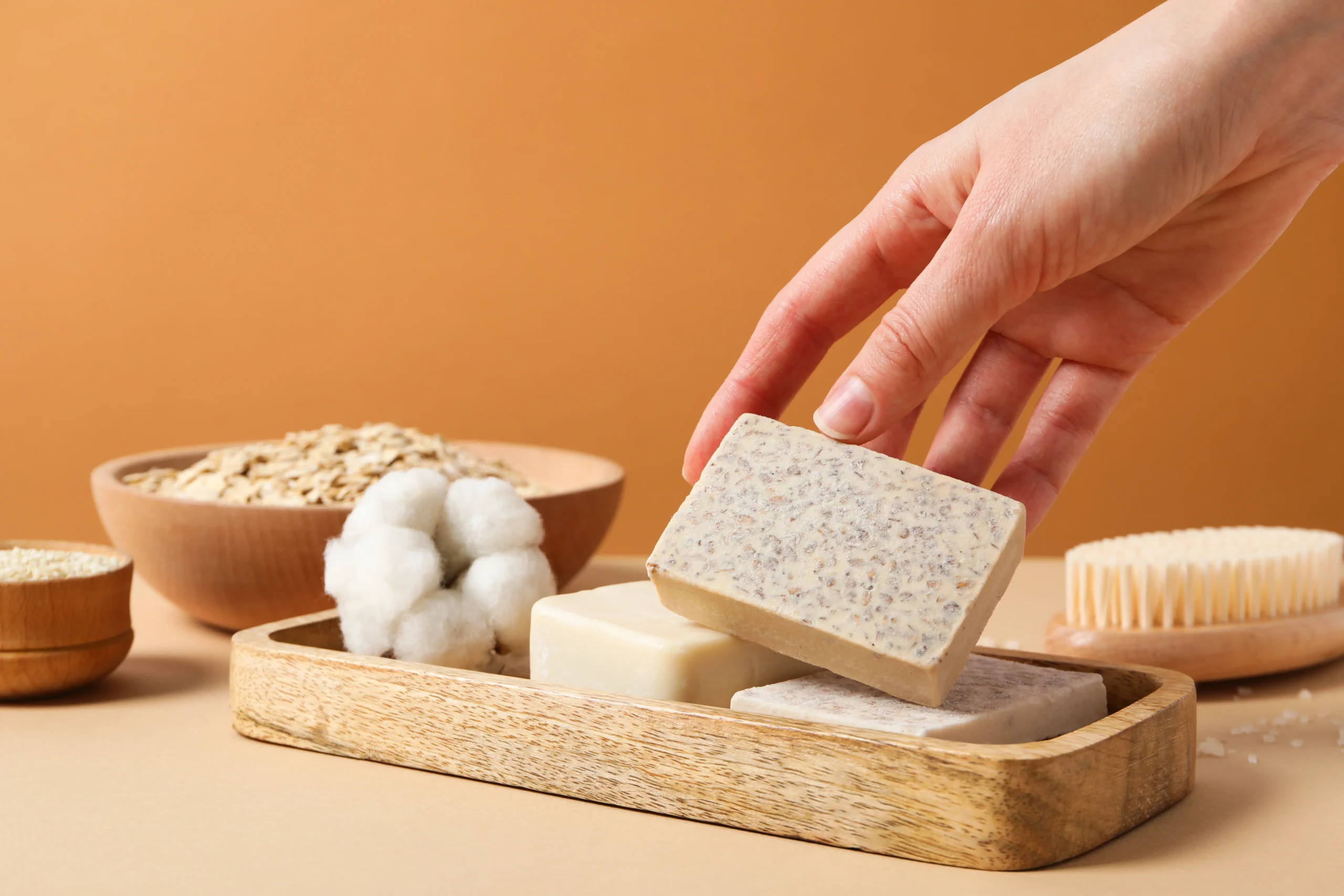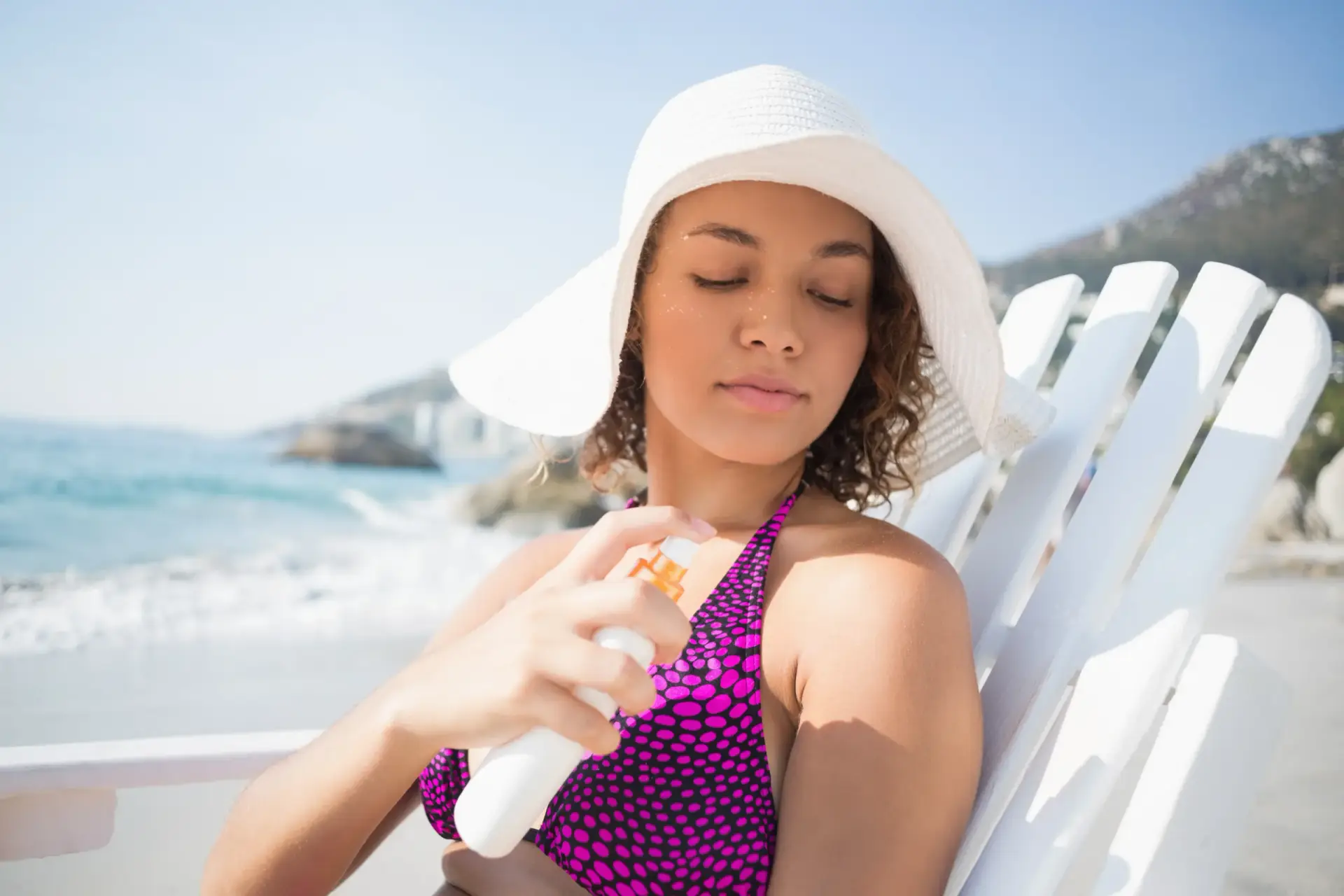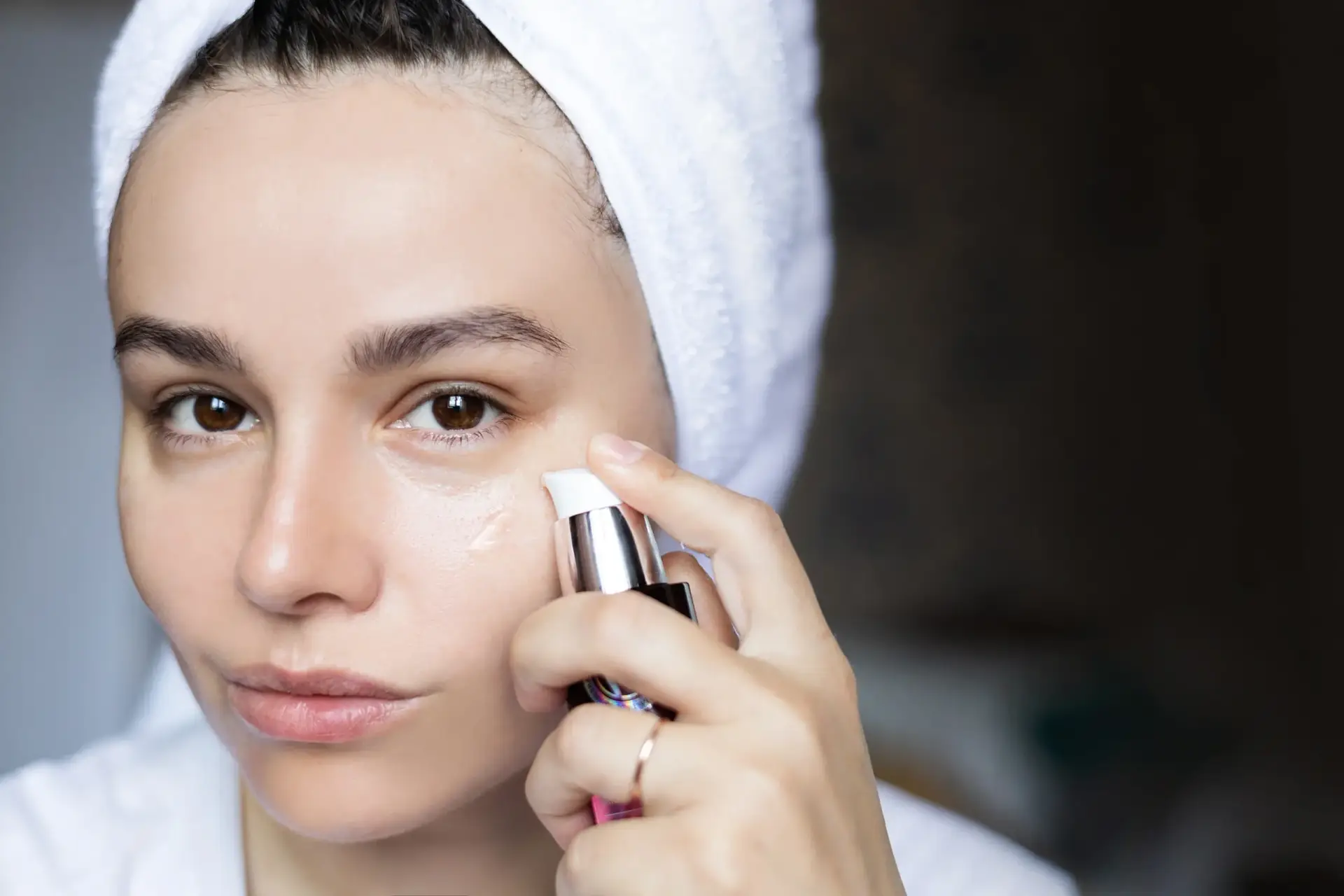Why the best Tinted Sunscreen Is Important for Acne Prone Skin
The best tinted sunscreen for acne-prone skin plays a transformative role in skincare as it addresses sensitivity and breakout issues while protecting from harmful UV rays. Many people think using sunscreen will clog pores or cause new acne. However, modern tinted formulas use advanced non-comedogenic ingredients that protect against the harmful effects of the sun and reduce redness, smooth skin texture, and even skin tone without aggravating acne. Choosing the right tinted sunscreen can help prevent premature aging, blemishes, and scars, making it an essential product in your daily routine.
Best Tinted Sunscreen for Acne-Prone Skin for Daily Protection and Breakout Control
The best tinted sunscreen for acne-prone skin protects against sun damage and balances skincare and coverage in one step. Protecting the skin barrier is crucial for those with blemished or acne-prone skin. UV rays can increase inflammation, darken acne scars, and prolong healing. Using a tinted sunscreen formulated for acne-prone skin creates a strong foundation that protects against long-term sun damage while instantly reducing redness and uneven skin tone, brightening the complexion.
Skin protects against sun damage and balances skincare and coverage in one step. Protecting the skin barrier is crucial for those with blemishes on acne-prone skin. UV rays can increase inflammation, darken acne scars, and prolong healing. Using a tinted sunscreen formulated for acne-prone skin creates a strong foundation that protects against long-term sun damage while instantly reducing redness and uneven skin tone, brightening the complexion.
Tinted sunscreen for acne-prone skin also boosts confidence. For many, acne not only ruins their appearance but also affects their self-esteem. Knowing that a product is protecting their skin and improving that a product is protecting their skin and enhancing their appearance at the same time is an instant confidence booster. Dermatologists emphasize that using sunscreen daily is one of the most effective anti-aging and anti-acne strategies. With the right tinted sunscreen, you protect your skin today and keep it cleaner and healthier tomorrow.
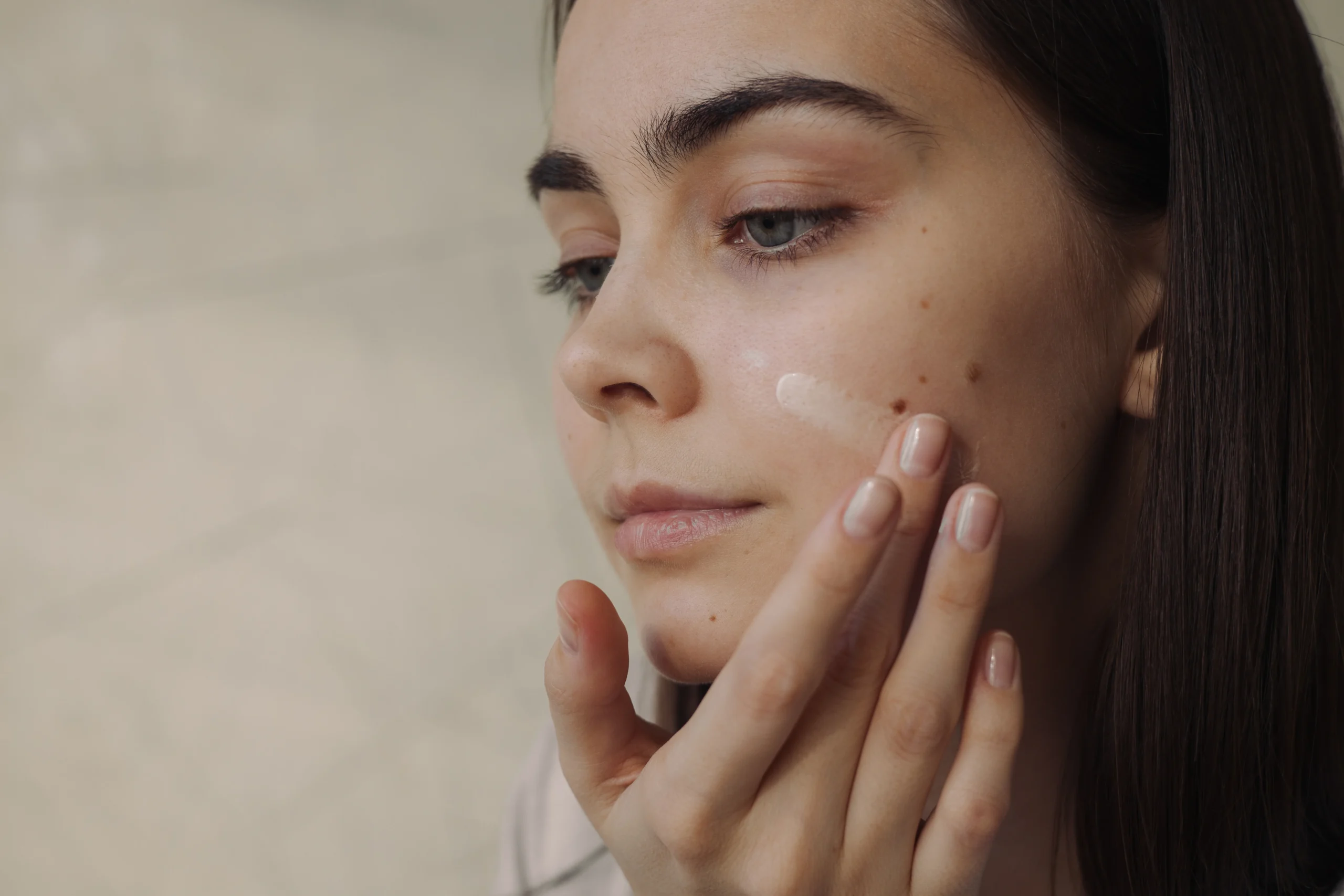
Key Ingredients of The Best Tinted Sunscreen for Acne-Prone Skin
When looking for the best tinted sunscreen for acne-prone skin, it’s essential to understand the ingredient label. Not all sunscreens are created equal, and the wrong formula can cause irritation, clog pores, or cause dryness. However, the right ingredients not only protect but also soothe acne-prone skin.
Mineral vs. Chemical Filters Tinted Sunscreen for Acne-Prone
The best tinted sunscreens for acne-prone skin usually rely on mineral filters, such as zinc oxide and titanium dioxide. These ingredients sit on the skin’s surface and reflect harmful UV rays, making them less likely to aggravate acne or inflammation. Mineral sunscreens are also gentler, ideal for sensitive or reactive skin.
Chemical filters, on the other hand, absorb UV rays and convert them into heat, which can be irritating to many acne-prone or sensitive skin types. However, modern formulas have improved, and some chemical sunscreens now contain soothing and hydrating agents that reduce side effects. Ultimately, choosing between mineral and chemical filters comes down to personal tolerance. However, dermatologists often recommend mineral-based tinted sunscreens for acne-prone skin.
Non-Comedogenic Formula Is The Best Tinted Sunscreen for Acne-Prone Skin
Another critical aspect of the best tinted sunscreen for acne-prone skin is whether the formula is non-comedogenic. Non-comedogenic means it won’t clog pores, reducing the risk of new breakouts. This is especially important for users, as even a small amount of oil-like ingredients can trigger new breakouts.
The best tinted sunscreens include soothing botanicals like niacinamide, green tea extract, or centella asiatica. These help reduce tea extract, or centella asiatica. These help reduce redness and inflammation and strengthen the skin’s barrier. Hyaluronic acid or glycerin are used for light hydration that keeps skin hydrated but not greasy, making these sunscreens considered multi-taskers.

How to Choose The Best Tinted Sunscreen for Acne-Prone Skin
Finding the best tinted sunscreen for acne-prone skin can sometimes be confusing, as there are countless options on the market. Each product promises protection, coverage, and skin benefits. But choosing the right formula largely depends on your skin type and desired finish. Since acne-prone skin is already sensitive, using the wrong sunscreen can lead to breakouts, while the right one can become your skin’s best friend.
First, identify your skin’s needs. Oily, acne-prone skin may benefit from a lightweight gel or matte-finish sunscreen. In contrast, dry skin may need a more hydrating formula. Many tinted sunscreens come in various finishes, so choosing according to the season or weather is easy. Lighter, breathable textures are safer for acne-prone skin than heavier cream-based sunscreen.
Another essential consideration is broad-spectrum protection. Tinted sunscreen for acne-prone skin protects against UVA and UVB rays. UVA rays penetrate deeply into the skin, causing age spots and darkening, while UVB rays are responsible for sunburn. So a sunscreen that protects against both types of rays is best.
Finally, shade range is also essential. Tinted sunscreens provide protection and help to even out skin tone. Using the wrong shade can make skin look uneven, so choosing a product that naturally adapts to different skin tones is best. Many brands now make “sheer tints” that adjust to various skin tones.
The Best Tinted Sunscreens According to Skin Type
Not all acne-prone skin is the same. Some people have oily skin all the time, while others experience breakouts with dryness. So, choosing the best tinted sunscreen varies from person to person.
- Oily Skin: A lightweight mineral-based formula that controls oil.
- Dry Skin: A hydreating sunscreen with squalane or hyaluronic acid.
- Combination Skin: A sunscreen that keeps the T-zone matte but adds moisture to areas.
- Sensitive Skin: A fragrance-free, mineral-based sunscreen that reduces the risk of irritation.
Shade Matching Tips
Tinted sunscreens are designed to help even skin tone and cover blemishes or redness. The right product will blend effortlessly into skin and won’t look artificial. If unsure, you can choose a “sheer tint” or “universal tint, “which will work with most skin tones.
Testing products for darker skin is essential, as some mineral sunscreens can have a white cast. But now many brands are offering shades for deeper tones. The right tinted sunscreen provides protection and is an alternative to a lighter foundation.
11 Best Tinted Sunscreens for Acne-Prone Skin In 2025
While countless options are on the market today, some brands are ahead in 2925. They feature modern technology, non-comedogenic ingredients, and light coverage for acne-prone skin.
Lightly Useable Options:
Lightweight tinted sunscreens are best for those who want minimal makeup for everyday wear. They absorb quickly, are non-greasy, and are suitable for daily use.
High-Coverage Options:
Some tinted sunscreens offer more coverage for special days or extra confidence. They work like BB creams and cover blemishes and redness without weighing down the skin.
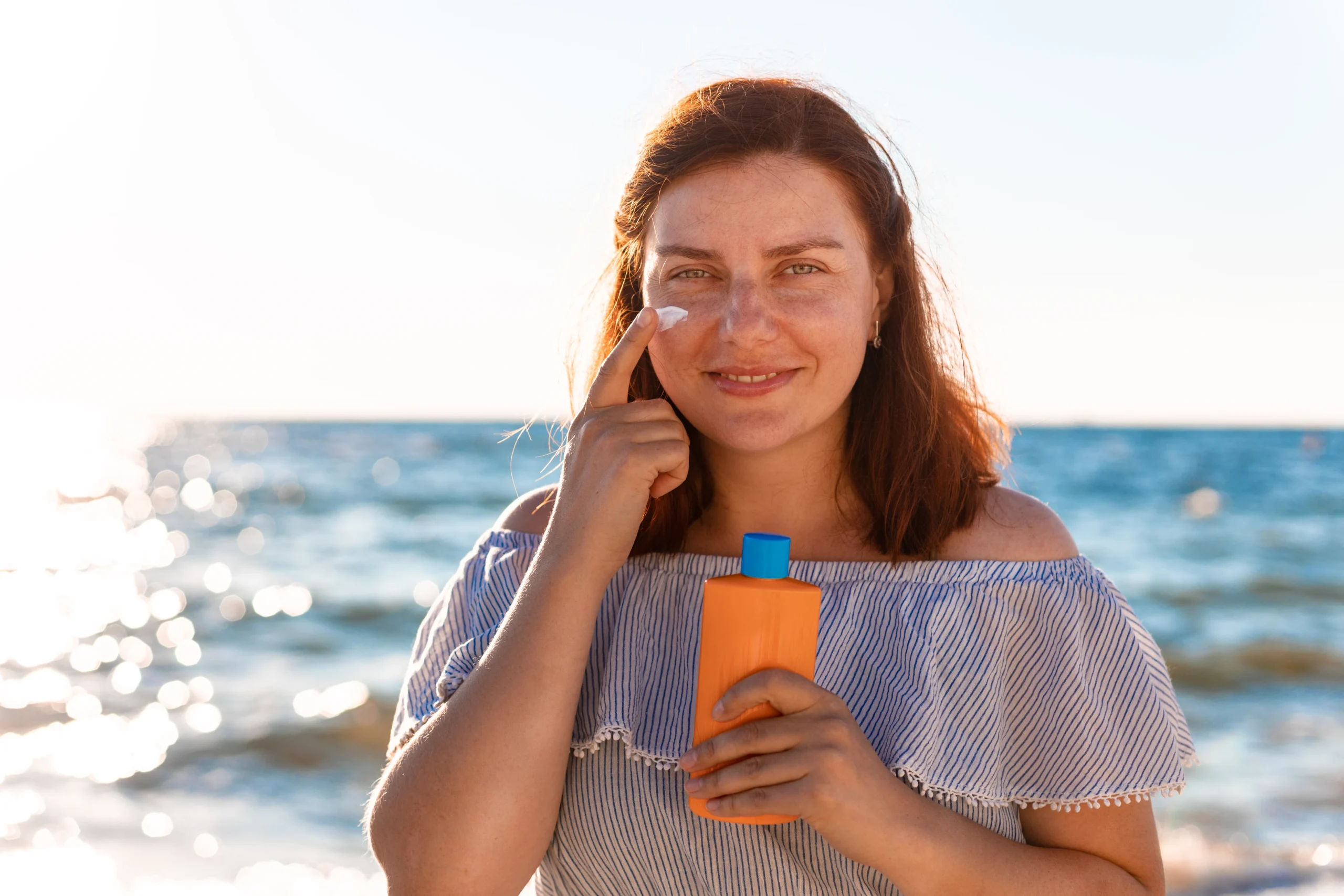
Tips for Properly Using The Best Tinted Sunscreen for Acne-Prone Skin
When used correctly, the best tinted sunscreen for acne-prone skin provides adequate sun protection and ensures smooth coverage and acne-friendly results. Even the highest-quality formulas can’t deliver the expected results if misapplied. Many people fear that sunscreen will make the skin heavy or increase acne. Still, when used correctly, tinted sunscreens provide a light, breathable, and natural finish.
Start with a clean face. Morning cleansing removes excess oil and dirt and creates an ideal base for sunscreen. Then, use a light, non-comedogenic Moisturizer according to your skin type. This hydrates the skin and ensures that sunscreen doesn’t clog dry areas. Also, Moisturizer acts as a protective layer between active acne treatment ingredients like salicylic acid or benzoyl peroxide and sunscreen.
Then, take about half a teaspoon of tinted sunscreen and dot it on your forehead, cheeks, and nose. Gently blend outwards with clean fingers. The tint will blend naturally into your skin and won’t leave any streaks or marks. For oily skin, mixing well in the T-zone area is essential so that your pores don’t get blocked.
Tips for Doing Layering Correctly
Proper layering is essential when using the best tinted sunscreen for acne-prone skin. Use sunscreen as the last step of your morning skincare routine, after Moisturizer and before makeup. If you’re using serums like niacinamide or hyaluronic acid, apply sunscreen to avoid peeling after fully absorbing them.
Tinted sunscreen can be used as a makeup base for those who want more coverage. When used alone, it gives a natural finish, or you can add a little concealer to problem areas if needed. Since tint evens skin tone, you need fewer layers of makeup, which benefits acne-prone skin.
Reapplication Rules
The effectiveness of the best tinted sunscreen largely depends on reapplying it at the right time. Sunscreen usually lasts for 2-3 hours. Reapplication is essential if you are in the sun for a long time or working outside. However, many people have a problem with how to reapply without ruining their makeup.
Tinted sunscreen powders or sprays can be used for this. They are lightweight and allow for easy touch-ups. Another way is to apply a thin layer using a makeup sponge with light pressure. This protects while keeping your makeup intact.
Avoid Common Mistakes
There are some common mistakes to avoid when using the best tinted sunscreen for acne-prone skin.
- Under-Applying: Many people only use a small amount, not providing enough SPF protection. The right amount is half a teaspoon for the face and neck.
- Over-Applying: Applying too much at once can create a cakey finish and block pores. Apply it slowly in a thin layer.
- Skipping Moisturizer: Many people think that tinted sunscreens are moisturizing enough, but they are not. Extra hydration is essential for acne treatment users.
- Not Reapplying: Applying sunscreen once in the morning does not mean all-day protection. Sunscreen effectiveness decreases with sweat, sun, and contact with the face, so reapplication is essential.
When used properly, the best tinted sunscreen helps control acne and keeps the skin smooth, even, and healthy in the long run.
Discover More Articles On Makeup And Beauty Here
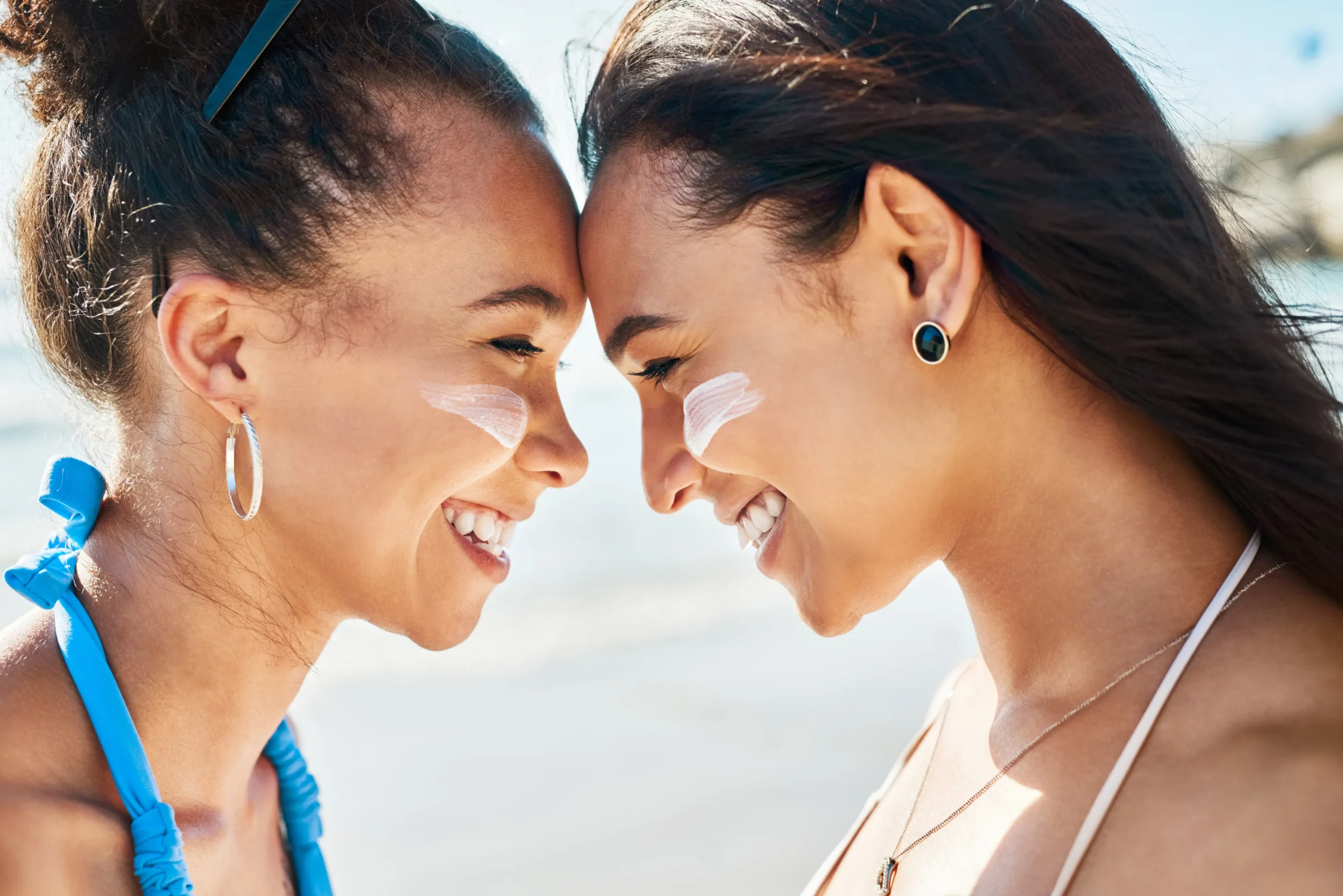
Final Thoughts
The best tinted sunscreen for acne-prone skin isn’t just a skincare product – it’s a confidence booster, a shield of protection, and an essential daily care item. Acne-prone skin always needs extra care, and skipping sunscreen can cause blemishes, prolong healing, and increase the risk of premature aging. Choosing the right tinted sunscreen will protect you from the sun’s harmful effects while also providing the benefits of light coverage that lets your skin breathe while still looking flawless.
Unlike heavy foundation or regular sunscreen, the best tinted sunscreen for acne-prone skin balances performance and comfort. It protects against UV damage, reduces redness, evens out blemishes, and prevents clogged pores- all in one step. You can choose a dermatologist-recommended formula, a lighter option for everyday use, or a version with a little more coverage, simplifying your routine and protecting your skin’s health in the long run.
Regular use is key. No matter the weather or season, using the best tinted sunscreen for acne-prone skin daily will protect you from invisible damage. Reapplying several times daily will increase that protection, keeping skin safe, smooth, and radiant. Proper cleansing at night and following a balanced skincare routine create the right environment for skin to heal and recover.
Ultimately, the best tinted sunscreen for acne-prone skin doesn’t just prevent sun damage—it’s a wise investment in skincare and self-care. By prioritizing protection and gentle coverage, you can help your skin look clearer, healthier, and more resilient. The journey with acne can be challenging, but with the right tinted sunscreen, every day can become an opportunity to protect, heal, and shine confidently.

